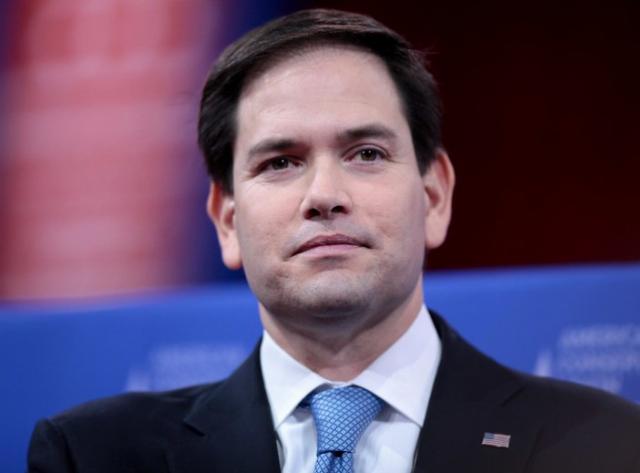Rubio brings free speech back to foreign (and domestic) policy
On April 16, secretary of State Marco Rubio announced the closure of the State Department’s Counter Foreign Information Manipulation and Interference Office (R-FIMI), formerly known as the Global Engagement Center (GEC). The closure marks a significant step in the dismantling of state-run censorship and aligns with President Trump’s 2024 campaign promise to combat government overreach in regulating speech.
Established in 2011 as the Center for Strategic Counterterrorism Communications (CSCC) under Executive Order 13584, the agency's initial mission was to counter terrorist propaganda. In 2016, it was rebranded as the Global Engagement Center (GEC) via Executive Order 13721, broadening its focus to include foreign propaganda and disinformation from state and non-state actors.
Cyber-expert and former State Department official Mike Benz, who worked for the State Department, interviewed Rubio to gain deeper insight into what the GEC’s closure means for free speech and foreign relations. Benz has been a key figure in exposing what he calls “the whole-of-society censorship framework.” Benz describes the framework as an architecture comprising VPNs, end-to-end encrypted chats, and other internet communication tools.
Benz argues that this framework, originally intended to promote the free exchange of information, quickly evolved into a system for suppressing dissent and censoring information not sanctioned by the state or its partners. The closure ends approximately $65 million in funding and the elimination of 50 full-time staff positions, according to Benz.
In the Benz-Rubio interview, Rubio explained that the GEC had “grown into this movement of actually going after individual American voices. ... NGOs and third-party groups who were supposed to be impartial ... were taking government funding and ... literally tagging and labeling voices in American politics.” In some cases, he added, these voices were being labeled as “foreign agents.” “Through the State Department, we were paying groups to attack and silence the voices of Americans,” he said.
The Trump administration, he emphasized, believes that the way to counter disinformation is not by suppressing competing narratives, but by promoting truth. “Americans have learned the hard way that speech can be turned into a political weapon — a label you can use to go after people you don’t like,” Rubio said. “Calling someone’s opinion ‘disinformation’ is a tactic that will ultimately backfire.”
Under President Trump, Rubio said Trump’s State Department will be “pro-American messaging” and will “incentivize and protect free speech” by advocating for the truth.
As an example, Rubio pointed to the Trump administration’s legal battle over the deportation of an alleged MS-13 member to El Salvador. He criticized the media’s portrayal of the individual as a “Maryland man.” “No — he was a Salvadoran citizen deported to El Salvador. That is disinformation,” Rubio said. “I saw a U.S. senator claim this man was a kidnapped American citizen, and it was published without any fact-check. He’s not an American citizen!”
Rubio emphasized that free speech is essential to counter such misrepresentations: “The important thing is that we have free speech so we can counter that. We can say, ‘This is not true.’ That’s how you handle it.”
Independent media, he noted, have struggled to push back against disinformation due to systemic suppression and censorship. To spotlight the issue, Rubio chose The Federalist to publish his April 16 op-ed announcing the GEC’s closure. In it, he criticizes a taxpayer-funded NGO, the Global Disinformation Index, which had listed The Federalist among the ten “riskiest online news outlets.”
According to Rubio, this designation was “a direct bid to drive off their ad revenue and put them out of business.” His column details the GEC’s history and its central role in what he describes as a “Censorship-Industrial Complex” that created disinformation campaigns related to a variety of issues, from Russiagate to the pandemic and election-related narratives.
Rubio wrote that this administration is “recommit[ting] the country to its core constitutional free speech principles at home and abroad.”
Rubio shared with Benz that the Trump State Department will make free speech “one of the pillars of our shared interest” when dealing with foreign countries. It has become a [key] part of our diplomatic situation that we raise when we interact with foreign interlocutors.”
The shift in American policy is especially important given the upcoming changes being implemented by the European Union concerning speech with the interconnected frameworks of the E.U. Disinformation Code of Practice and the E.U. Digital Services Act.
To further clarify the administration’s stance, Rubio used his op-ed to outline what free speech looks like under Trump:
Our republic is based on putting trust in the ordinary citizenry. Our Founding Fathers took the bold step of believing that ordinary citizens can sift through information, decide which policies and candidates are best, and vote accordingly.
Our “disinformation experts” reject this thesis and, in the process, reject our democratic republic itself. ... If citizens need the government to step in and tell them what is disinformation and what isn’t, then power doesn’t rest with the people at all — it rests instead with the people who write the propaganda telling the public what to believe.
The Trump administration rejects this anti-American attitude. The American people don’t need an obscure agency to “protect” them from lies by pressuring X to ban users or trying to put The Federalist out of business. This administration will fight false narratives with true narratives, not with heavy-handed threats decreeing that only one “truth” be visible online.

Image: Marco Rubio. Credit: Gage Skidmore via Flickr, CC BY-SA 2.0 (cropped).





